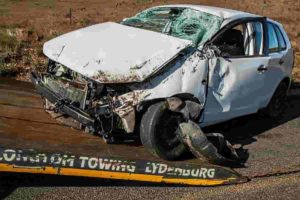The National Safety Council reports that there were an estimated 40,100 traffic fatalities in 2017. That means more than 40,000 families around the country lost a mother, father, son, daughter, brother, or sister last year. In the larger, more catastrophic collisions, some families even lost multiple loved ones.
Losing a family member is always devastating, but the unpredictable nature of auto wrecks can multiply the grief significantly. Most people do not call their loved ones to say goodbye every time they get behind the wheel. Likewise, estate planning and life insurance are probably the furthest topics from your mind when planning a road trip.
At the end of the day, though, getting into a car accident is a real very possibility, especially if you drive on a regular basis. There is nothing wrong with hoping for the best, but if you fail to plan for the worst, it is your loved ones who could end up suffering the most.
If you are the sole breadwinner, for example, and something were to happen to you tomorrow, would your family be okay financially? Do you have enough in savings to cover their expenses in the years to come? If not, have you purchased an adequate life insurance policy?
If the answer to all three of the above is “no,” it may be time to consider some long-term financial planning. In the meantime, though, you can take comfort in the fact that if your family were to experience an unanticipated loss, they might be able to recover compensation for the damages.
A wrongful death claim is a kind of tort claim that allows surviving family members to seek compensation for any damages they have incurred as a result of a loved one’s death. For example, if you are a stay-at-home parent and your spouse dies in a collision with a drunk driver, you could file a wrongful death suit against the impaired motorist for damages like lost income and benefits, lost of inheritance, and loss of consortium.

If your loved one would have had grounds for a personal injury claim, it is likely that you have grounds for a wrongful death claim.
Elements You Must Prove in a Car Accident-Related Wrongful Death Claim
Like all tort claims, there are two essential elements you must prove in order to file a successful wrongful death suit following a car accident: liability and damages. You can prove these elements by demonstrating:
- Another party was responsible for the crash that caused your loved one’s death;
- The crash was the direct result of the other party’s negligence and thus could have easily been prevented;
- The deceased is survived by dependents or beneficiaries, like a spouse or children; and
- The surviving family members incurred damages as a result of the death.
As your wrongful death attorney can explain, the precise statutes that govern wrongful death claims vary from state to state. In general, though, you should be able to recover compensation for the loss if you can prove the above elements.
Typically, the biggest differences among state law have to do with the last two elements, or the surviving family and resulting damages. Each state limits which family members may bring a wrongful death suit against a reckless driver and what kinds of damages they can collect.
Aside from the estate’s personal representative, immediate family members like a spouse, child, or parent are usually the only parties who can file a wrongful death lawsuit following a motor vehicle collision. The purpose of this kind of claim is to compensate individuals for the loss, so distant family members who did not rely on the deceased for financial or emotional support are not entitled to pursue a settlement.
When it comes to calculating the actual settlement, potential damages might include medical bills prior to the death, funeral and burial expenses, lost income and benefits, pain and suffering, and loss of consortium. Although no amount of compensation will bring your loved one back, recovering funds for both economic and non-economic damages will lessen some of the burden because you will not have to worry about making ends meet while grieving the loss.
